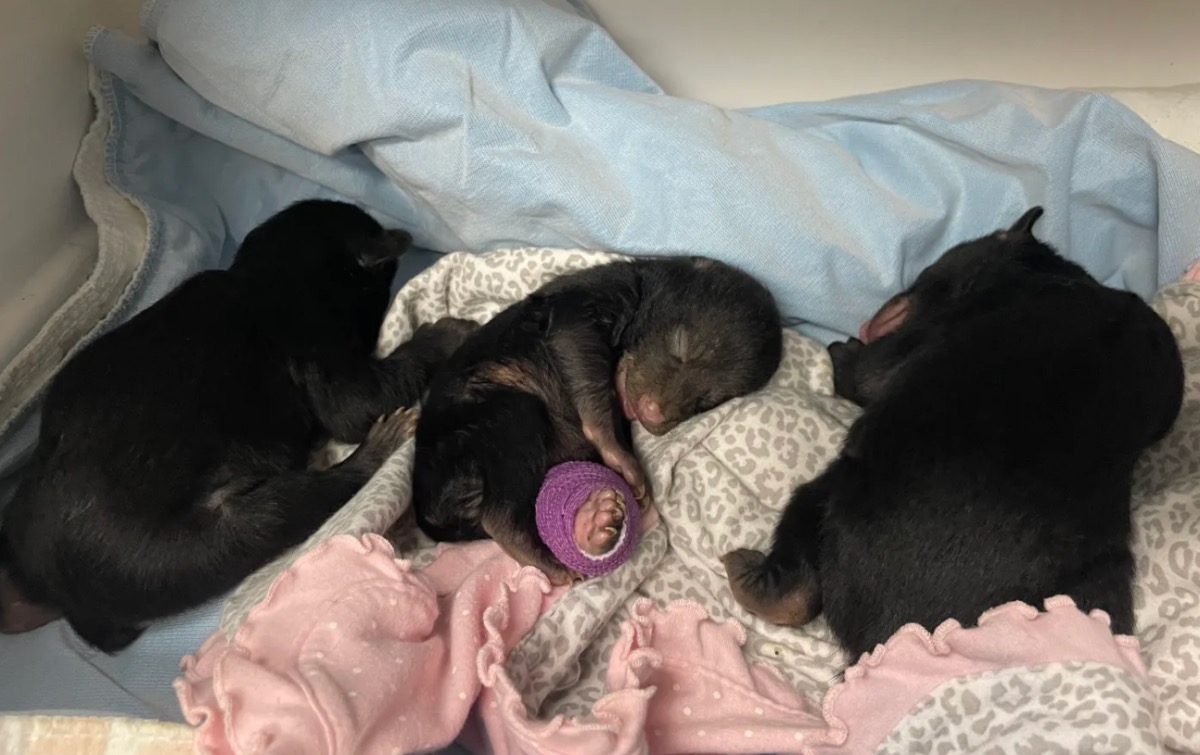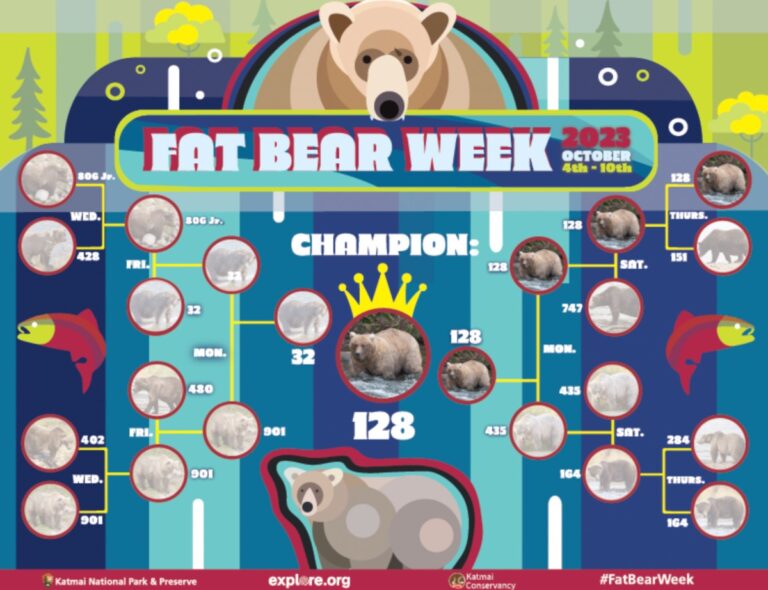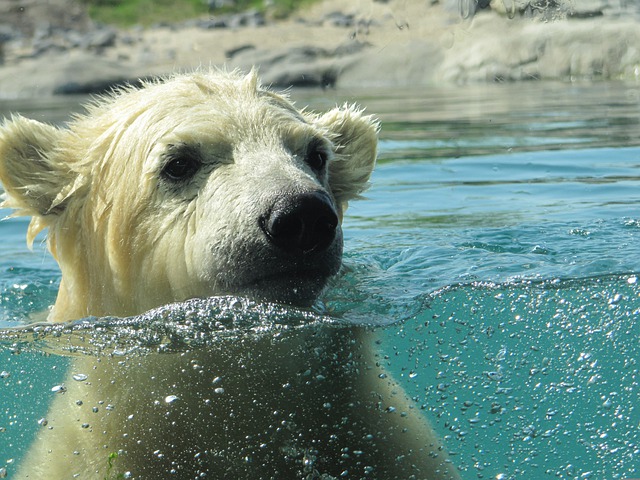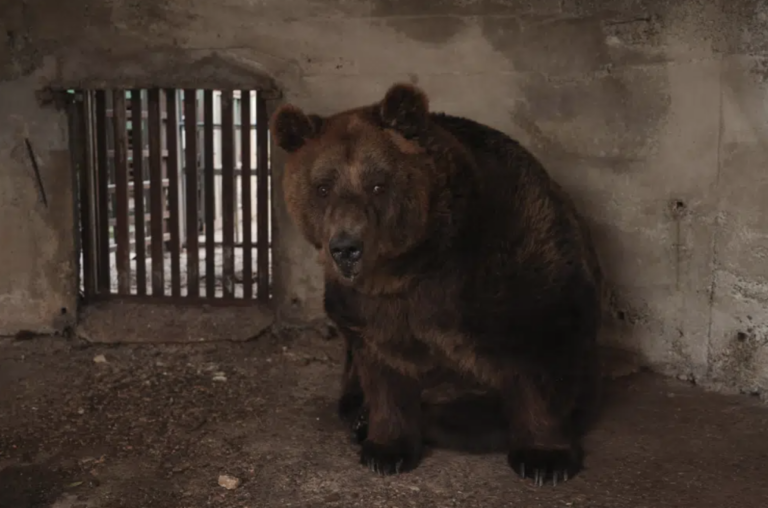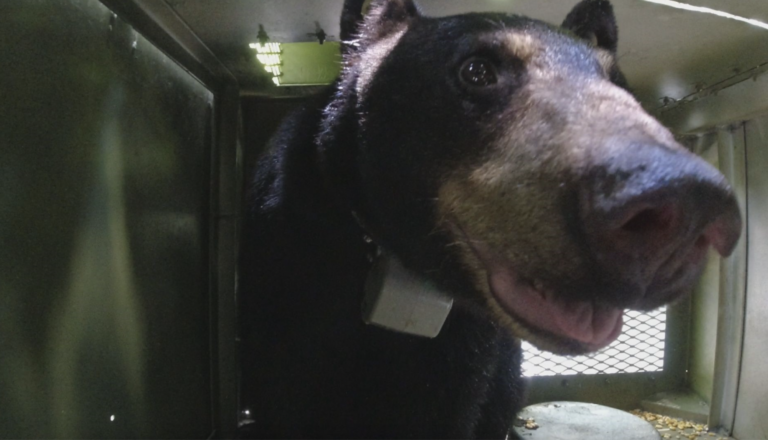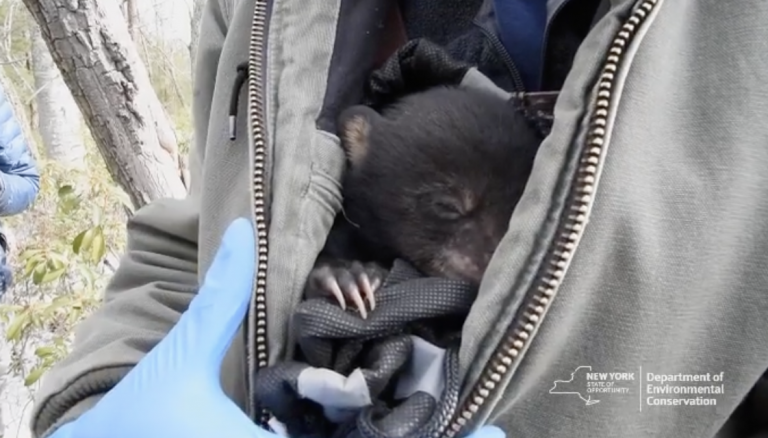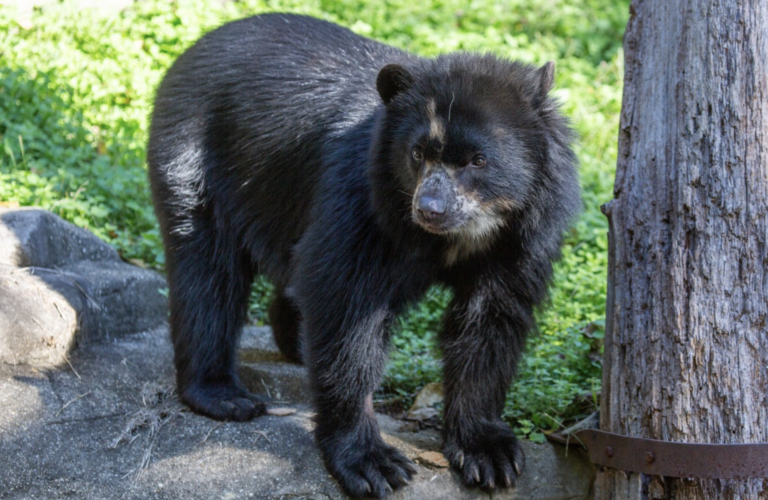Three Orphaned Cubs Found in Virginia
On Valentine’s Day, three orphaned cubs were discovered in Orange County, Virginia. The construction crew was clearing up the brushes when they disturbed the den and scared off the mother. Once the crew realized that the bear had left three cubs in the den, they contacted the Virginia Department of Wildlife Resources. The rescue team took the bears to the Wildlife Center of Virginia.
According to the center team, two of the cubs were doing well but a third, a male cub, had one of its hind legs severely injured. The female siblings, had skin lesions, probably due to ringworm. Since the third bear sustained lacerations to his hind leg, the team decided to take all three and not risk the mother not coming back.
Wildlife Center of Virginia explained, “Even though the crew was willing to leave the den in place for the mother to return, because one of the cubs was injured and there was ongoing construction in the area, it was safer to transport the cubs to the Center.”
At the center, the vets did what they could for the male cub. “The vet team bandaged the cub’s leg, and are providing pain medication to keep him comfortable. Because of the cub’s young age, his bones have not fully ossified and the team doesn’t immediately understand the extent of the damage, but his prognosis is grave.” Perhaps when the mother ran off, she stepped on her cub in a hurry to escape the den.
Right now, the three orphaned black bear cubs receive 24/7 care and are bottle-fed every six hours. “These cubs are incredibly vulnerable,” explained Alex Wehrung, the Center’s Public Affairs Manager, “Their survival depends on specialized care and a quiet, stress-free environment.”
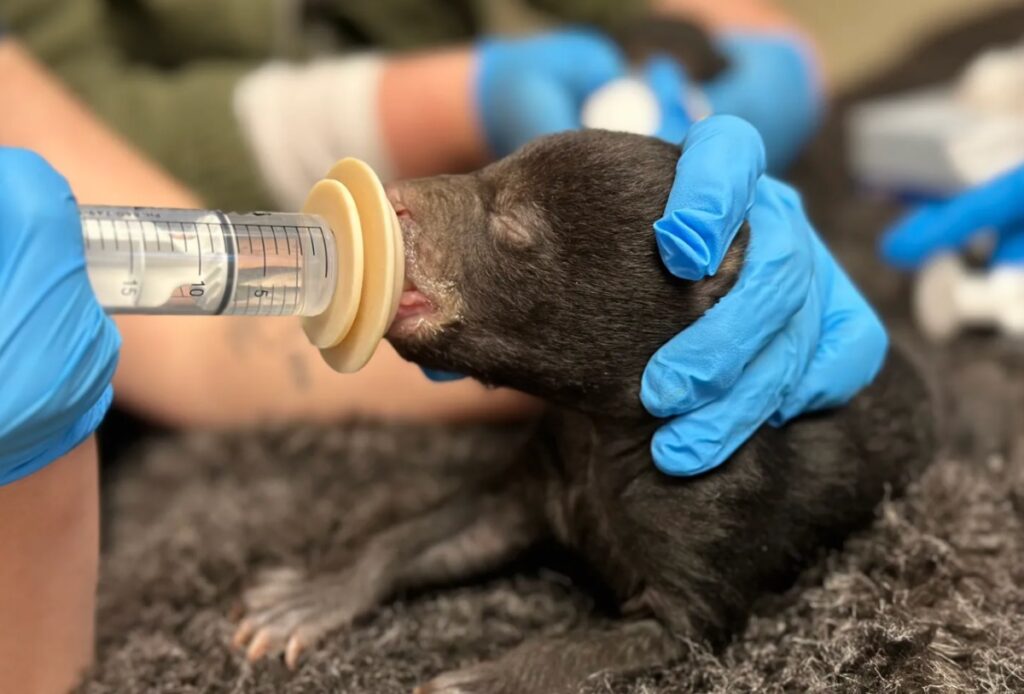
Surrogate Mother for the Three Orphaned Cubs
The Virginia Department of Wildlife Resources is searching for a surrogate mother for the cubs, but as of yet has not found any. None of the female black bears the DWR has found in dens have given birth. If the wildlife resources team does not find a substitute mother, the Wildlife Center of Virginia will continue to care for them until next spring. Let’s hope that the third bear makes a full recovery and gets to join the wild and free nature life. If you’d like to help the center in its efforts, you can donate on their website.
If you live in an area where there are black bears, make sure that you do not disturb their dens. Mothers give birth during mid-January and early February to helpless and hairless cubs. The cubs will emerge from the den in spring. Their mortality rate is 20% in the first year, mainly due to predators and being abandoned by their mothers.

